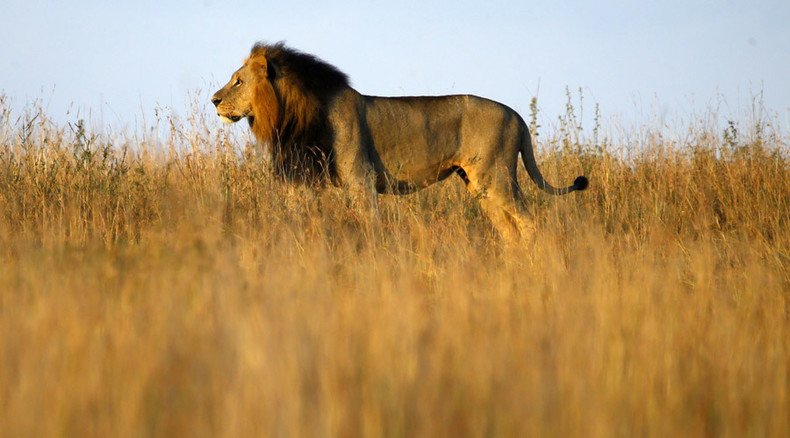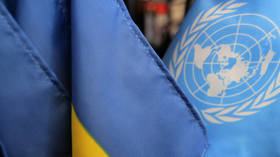US govt never minded Americans killing rare lions before Cecil – WikiLeaks document

WikiLeaks has unveiled a secret document on US hunters in Zimbabwe allegedly sent from a US official to the CIA, casting light upon the recent killing of Cecil the lion, a popular attraction to Zimbabwean Hwange National Park’s visitors.
A 2008’s classified memo signed by James D McGee, the-then US ambassador to Zimbabwe, has revealed that the US government knew about and approved of its citizens going trophy hunting to South Africa, says WikiLeaks.
Though Obama administration officials say they are “deeply concerned” with what has happened and are eager to help the Zimbabwean government with an investigation if need be, the recently leaked document makes the issue more complicated. The memo implies that the only thing the US government is concerned about in the matter is “serious risks that Americans could be implicated in smuggling and poaching operations,” with no apparent sympathy for the endangered species being killed merely for fun by rich tourists.
The hunting of Walter Palmer: Internet goes after 'lion killer' US dentist http://t.co/6rAbFxgOq7pic.twitter.com/n3wWQCLZsH
— RT America (@RT_America) July 29, 2015The situation is aggravated by Zimbabwean legislation’s ambiguity, noted in the memo as well: “It was unclear ‘how legal’ these hunting operations were, since it appeared the hunters had permits issued by Parks to kill the animals, despite the provision in the National Parks Act that prohibits commercial hunting.”
If that’s the case, it’s not surprising that Walter Palmer, who is now wanted for extradition by the Zimbabwean government after paying $55,000 for killing the country’s local favorite lion, didn’t know he was breaking the law. Furthermore, in a statement Palmer, now treated with utter scorn in the media, told Colorado News: “To my knowledge, everything about this trip was legal and properly handled and conducted.”
@GMA , can't wait for justice for this dentist. ZIMBABWE lost a symbol of beauty.
— Jen (@jgalbreath12) July 31, 2015“I have not been contacted by authorities in Zimbabwe or in the US about this situation, but will assist them in any inquiries they may have. Again, I deeply regret that my pursuit of an activity I love and practice responsibly and legally resulted in the taking of this lion,” he added. Nevertheless, as of today, a White House petition calling for Palmer’s extradition to Zimbabwe has received more than 160,000 signatures (a minimum of 100,000 signatures are needed), which means the Obama administration is obliged to make some kind of response. Palmer managed to return to the United States before the Zimbabwean authorities knew Cecil had been killed.
US animal rights advocates have expressed outrage at the lion’s killing, prompting Palmer to close his dentist’s surgery in Bloomington, Minnesota.
Most experts and conservation activists believe the incident should compel Zimbabwe to reconsider its laws which would hurt the profit of still operating websites like LuxuryHunts.com or African Sky Hunting. Cecil the lion, who always enjoyed human contact, was lured out of the Hwange National Park, wounded with a bow and arrow and then shot dead with a gun on July 1. His carcass was discovered only a few days later.
Hwange National Park is labeled a "free roam" zone under Zimbabwean law, so killing the lion inside the park would have been illegal.Zimbabwean laws allow hunting in safari areas, forestry areas, game ranches and communal lands. The number of lions allowed to be hunted is determined by the government.
Zimbabwe makes an estimated $20 million a year from trophy hunting, with most hunters coming from the US – almost 65 percent. African lions, or, in scientific terms, Panthera leo, were put on the list of vulnerable species in 1996 by the International Union for Conservation of Nature. According to the data from the LionAlert conservation group, the world has lost more than 80 percent of its lion population since 1975.













